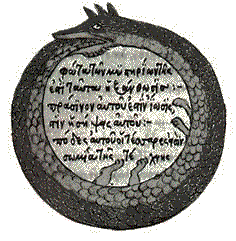The Clear Bead
 Rumi writes:
Rumi writes:The clear bead at the center changes everything.
There are no edges to my loving now.
I've heard it said there's a window that opens
from one mind to another,
but if there's no wall, there's no need
for fitting the window, or the latch.
Cultivating emptiness seems to be exactly the opposite of what most endeavors in the world encourage us to do. We try to fill ourselves up with so many things that our minds burst and our bodies go numb. We desperately try to be someone. Sincerely. We try desperately and sincerely to be someone. For the greater good, we say, this desperation and striving serves.
If we have nice things, things that are coveted by the many, we feel somehow that we are doing a good job at being a success. Again, Rumi speaks:
Someone who goes with half a loaf of bread
to a small place that fits like a nest around him,
someone who wants no more, who's not himself
longed for by anyone else,
He is a letter to everyone. You open it.
It says, Live.
Truly living and cultivating emptiness require authenticity, a willingness to drop masks and pretense. They demand true courage and humility, simplicity and an open heart. Cultivating emptiness requires living from the clear bead of the heart. If there are walls around our heart, if our minds are jammed tight with what we are told is important to know, how are we ever able to open our hearts and minds to the other? How can we ever follow the movement of soul?
I wonder how different training programs in the psychoanalytic world would be if these principles were not only taught, but followed, if they were present not only in content but also in the day to day process of teaching and learning.
Clear beads are not generally encouraged, especially within endeavors involving power, prestige and a sense of elitism, like psychoanalytic institutes. Usually, the more you have the better it is. In my professional world this would mean more analysands, more articles published, more books written, more lectures slated. Always more. I'm not saying that these things are bad. That's not it. But without a deep sense of consciousness about what drives us to these things, we tend to mistake having them for a sense of worth and meaning and accomplishment. We tend to put them between us and the other, creating a wall, a window, and a latch.
I wonder what the practice of analysis would be without the assumed power, prestige and elitism that accompany the profession.
I have heard repeatedly from others about the lack of genuine loving kindness, the lack of heart, in the process of personal exchange within the institutional psychoanalytic setting. Indeed, I have seen this myself. I do not believe this way of acting is intentional, necessarily, but perhaps the lack of awareness about the nature of our interpersonal exchange is even more insidious and damaging than outright intention.
If it is not intentional then what are we doing?
As Otto Kernberg has said here when writing about psychoanalytic institutions, it is not enough to bring our grief "to the hour," meaning it is not enough to take to one's analyst the wounds received from abuse of power and lack of sensitivity within the hierarchical structure. As long as the problem is treated solely as the individual's "shadow", this lack of true loving kindness and the inability to act from a place that is void of the will to personal power remains. As long as all players do not examine themselves openly and with ruthless honesty, genuine creative life suffers. The place and importance of process is denied. In a relatively self-contained hierarchical system it is easy for this to happen.
It is clear that these kinds of concerns are not exclusive to any one profession or group. I think we are all, individually and collectively, struggling to find the answers to these problems - to the loss of soul, the loss of our humanity.
I've perhaps rambled too much here. Cast the net into too diverse waters. But none of this is supposed to be perfectly, logically stated. The observations are merely musings, my way to open a path of dialogue about these concerns. Even if there is no public exchange here on this page, perhaps the ideas themselves will spark something in someone and help turn the energy around, somewhere, some way.
I realize it can feel uncomfortable to say anything in such an open forum. I have already heard from several people in private exchange. And I thank you for that.
It is the kind of response that helps keep the clear bead of the heart intact.

